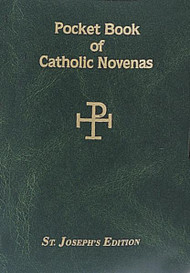


Intercessory (for a particular request).īy standard liturgical norms, novenas may be performed in church, at home, or anywhere where solemn prayers are appropriate, though some indulgenced novenas require church attendance.In preparation for a Church feast the revised Enchiridion Indulgentiarum assigns indulgenced novenas to particular feasts: "A partial indulgence is granted to the faithful, who devoutly take part in the pious exercises of a public novena before the feast of Christmas or Pentecost or the Immaculate Conception of the Blessed Virgin Mary.".In the Roman Catholic Church, there are three recognized categories of novenas, though this distinction is not exclusive: After the Protestant Reformation and Counter-Reformation, the Catholic Church formally permitted novenas, in particular through the papal approvals of a large number of novenas by Pope Pius IX. By the 11th century, the novena practice had become a means in Christianity of praying to petition spiritual or personal favor through a saint, such as Virgin Mary. The practice of novena grew by the Middle Ages to include pious prayers for nine days before a feast in honor of a saint identified on a liturgical calendar. The Church Fathers also assigned special meaning to the number nine, seeing it as symbolic of imperfect man turning to God in prayer (due to its proximity with the number ten, symbolic of perfection and God). In the New Testament, this biblical event is often quoted from Acts of the Apostles, 1:12–2:5. Over time, members of the Roman Catholic faith began to associate novena with Christian themes such as the nine months Jesus spent in the womb, the giving-up of His spirit at the ninth hour, and the occasion in the Upper Room with Twelve Apostles and the Blessed Virgin Mary when they prayed for nine days until the Holy Spirit descended on the Feast of the Pentecost. Augustine, Pseudo-Alcuin and John Beleth to warn Christians not to emulate the custom.

The practice may trace its origins to an early Greek and Roman custom performed by families, consisting of nine days of mourning after the death of a loved one, followed by a feast, which originally prompted Catholic writers such as St. The practice of the novena is based in early Christianity, where Masses were held for nine days with devotional prayers for someone who has died. The word Novena is rooted in the Latin word for nine. Above: a group gathered for a novena to Our Lady of Mount Carmel, most likely a mourning event (c. History Novena likely has roots in ancient funeral-related rituals. Novena prayers are customarily printed in small booklets, and the novena is often dedicated to a specific angel, saint, Marian title of the Blessed Virgin Mary, or one of the persons of the Holy Trinity. The prayers are often derived from devotional prayer books, or consist of the recitation of the rosary (a "rosary novena"), or of short prayers through the day. Novenas are most often prayed by members of the Roman Catholic Church, but also by Lutherans, Anglicans, and Eastern Orthodox Christians they have been used in ecumenical Christian settings as well. In some Christian communities, such as in Africa, Latin America and the Philippines, novena traditions are popular and include devotional rituals such as congregational prayers, the decoration of statues, hymn singing with music, as well as community fiesta events over beverages, refreshments or processions. The nine days between the Feast of the Ascension and Pentecost, when the disciples gathered in the upper room and devoted themselves to prayer, is often considered to be the first novena. Novena to Our Lady of Perpetual Help in Brazil A booklet of the novena to Sweetest Name of Mary, in Bikol and printed in Binondo, Manila dated 1867Ī novena (from Latin: novem, "nine") is an ancient tradition of devotional praying in Christianity, consisting of private or public prayers repeated for nine successive days or weeks. For other uses, see Novena (disambiguation).


 0 kommentar(er)
0 kommentar(er)
